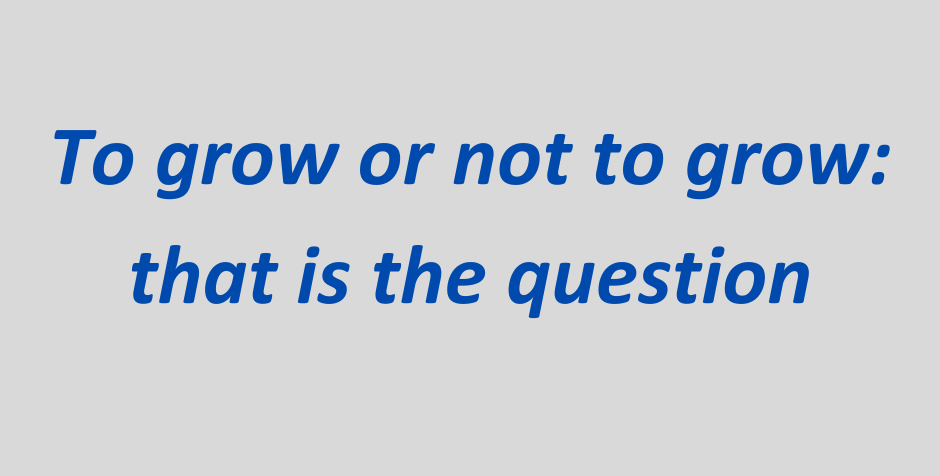(Published in Business Day – 12 November 2024)
To grow or not to grow is a key question facing founders once their business is off the ground.
Noah (not his real name), a very enthusiastic and clearly effective entrepreneur in Kenya, just loves to sell. He wakes up fully energised by the idea of getting out there and offering customers great deals. He is enterprising and keeps three different little businesses going.
He has great plans to employ staff, grow a franchise network and expand. The danger, of course, is that as he grows he will have to spend more and more time recruiting and managing staff, installing systems to prevent them from defrauding him, and looking after the growing burden of administration and regulation. This could leave him with no time to indulge his passion to sell. So either he has to be very smart in delegating all that other stuff to people he trusts and can train, or give up the ambition to grow and rather just enjoy life selling on his own.
But being small is limiting. Noah needs capital to secure his suppliers at favourable rates. Small companies are more vulnerable to losing key staff. Noah may invest time in training a bright young recruit with a view to then being able to spend his own time interacting with clients, only to have this person gratefully leave to launch his own competing business, taking his customers with him.
Keeping ahead of the competition that will follow any success can require further investment, especially in talent.
If Noah’s company does reach medium size and he wants to grow further, he may find himself subject to conflicting incentives. Investors are incentivized to generate the highest return possible from their portfolio. If one of their companies can hit unicorn status, that covers several who fail on the way. So they may incentivise founders to aim for reckless growth.
Founders are then faced with accepting this risk to attract the capital, or resisting the lure of fabulous returns in order to protect their prized creation and more modest livelihood. Employees will almost certainly be on the side of less risk, to preserve their jobs.
So founders looking for ambitious growth without too much risk should be very careful to find investors who share their values and their view on long term sustainability. It may be worth settling for a lower valuation to avoid unreasonable ambition killing the business.
The implications for the founder’s management team are both exciting and daunting. The excellence that brought them so far may not be enough to take them further. The bigger company will require a wider perspective on business strategy and the ability to identify and install systems and processes.
To avoid spans of control becoming unmanageable, some managers may have to let go pet functions. Managers of teams may become managers of managers, with this significant shift from supervising people to coaching managers how to supervise teams. The higher one goes in a company and the more formal power one has, the more it requires new skills of influence, collaboration and subtle positioning that may be alien to a very effective supervisor.
Does Noah have the breadth of vision and cognitive skill to handle the increasing complexity? And he will need humility to keep learning.
Questions of lifestyle arise. Will Noah’s family be with him in facing the increased pressure and growing demands on his time? Choosing to grow takes courage.
It’s not quite iambic pentameter, but to misquote Shakespeare: To grow, or not to grow: that is the question: Whether ’tis nobler in the mind to suffer the slings and arrows of attracting outrageous fortunes; or avoiding that risky sea of troubles, by modest ambition enjoy a life of comfort?
Jonathan Cook chairs Thornhill Associates.

